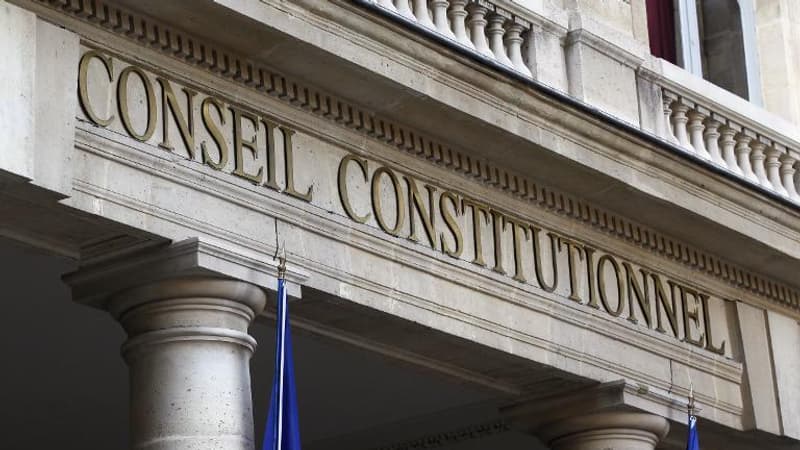After three months of political and social crisis, all eyes are on the Constitutional Council this Friday, which must announce at the end of the day its decisions on the pension reform and on the project of the left for a shared initiative referendum ( RIP) intended to counter it.
Political time seems suspended in the decisions of the Constitutional Council, which has already had to rule on the constitutionality of a law on several occasions since its creation in 1958. Since its creation, in fact, 350 texts have been partially or totally censored by the institution.
In total, only 17 laws have been totally censored since the start of the Fifth Republic. Focus on two of them that marked the economic policy of France.
Raymond Barre’s Finance Bill (1980)
A total blackout of a finance law has only happened once. Every year, the government presents its finance bill to parliamentarians. The objective is to define, for the following year, the income and expenses of the State.
In 1979, Raymond Barre, Valéry Giscard d’Estaing’s prime minister, presented his budget to an assembly headed by the RPR, the predecessor of the UMP, which invalidated the revenue part of the law. Despite everything, the government continues to review the law and considers it valid. The budget presented by the government of Raymond Barre, however, did not respect the vote in two parts: first, it evaluated the expenses before the income, which is unconstitutional. “And since the form is flawed, the Constitutional Council censors without even expressing itself on the substance,” explains a constitutionalist.
On December 24, the institution totally invalidated the finance bill. For the first and only time in the history of the Fifth Republic, France finds itself without a budget for the coming year. However, there is a measure in the Constitution that authorizes the government to collect existing taxes for the future year, as well as contract budget appropriations. And that is what Raymond Barre chooses to do.
The “CCE”, Nicolas Sarkozy’s carbon tax (2009)
Between the carbon tax and the Constitutional Council is a story of heartbreak. On two occasions, in 2000 and 2009, a law establishing such a tax has been challenged. In June 2009, the day after the European elections marked by the push for Europa Ecologie-Les Verts, Nicolas Sarkozy decided to play his ecological game by commissioning Michel Rocard to work on a CCE. An idea that is not new, far from it, since it appeared in the ecological pact of Nicolás Hulot, signed in 2007 by all the candidates for the presidency.
Instead of the rate of 32 euros per ton of CO2 proposed by the former president of the Socialist Government, the deputies of the UMP agree on the threshold of 17 euros, and immediately adopt the carbon tax, applicable from January 1 2010. Fair, but insufficient for ecologists, the climate-energy contribution is strongly criticized by the PS, which deems it “ecologically ineffective and socially unfair” and seizes the Constitutional Council.
The ax finally falls on December 29, three days after its entry into force: the tax is censured by the Elders. Reason: by multiplying the exceptions and partial refunds seized by the different lobbies, it creates a breach of equality before the tax and becomes “contrary to the objective of combating global warming”.
This censorship will turn out to be much more substantial than a simple setback: despite the intact “determination” of Nicolas Sarkozy and the announcement by the government of a reform of the applicable tax on July 1, 2010, this will never be seen. The Prime Minister, François Fillon, will bury him discreetly on March 23, 2010, alluding to a future European tax, less burdensome for the competitiveness of French companies.
Source: BFM TV


